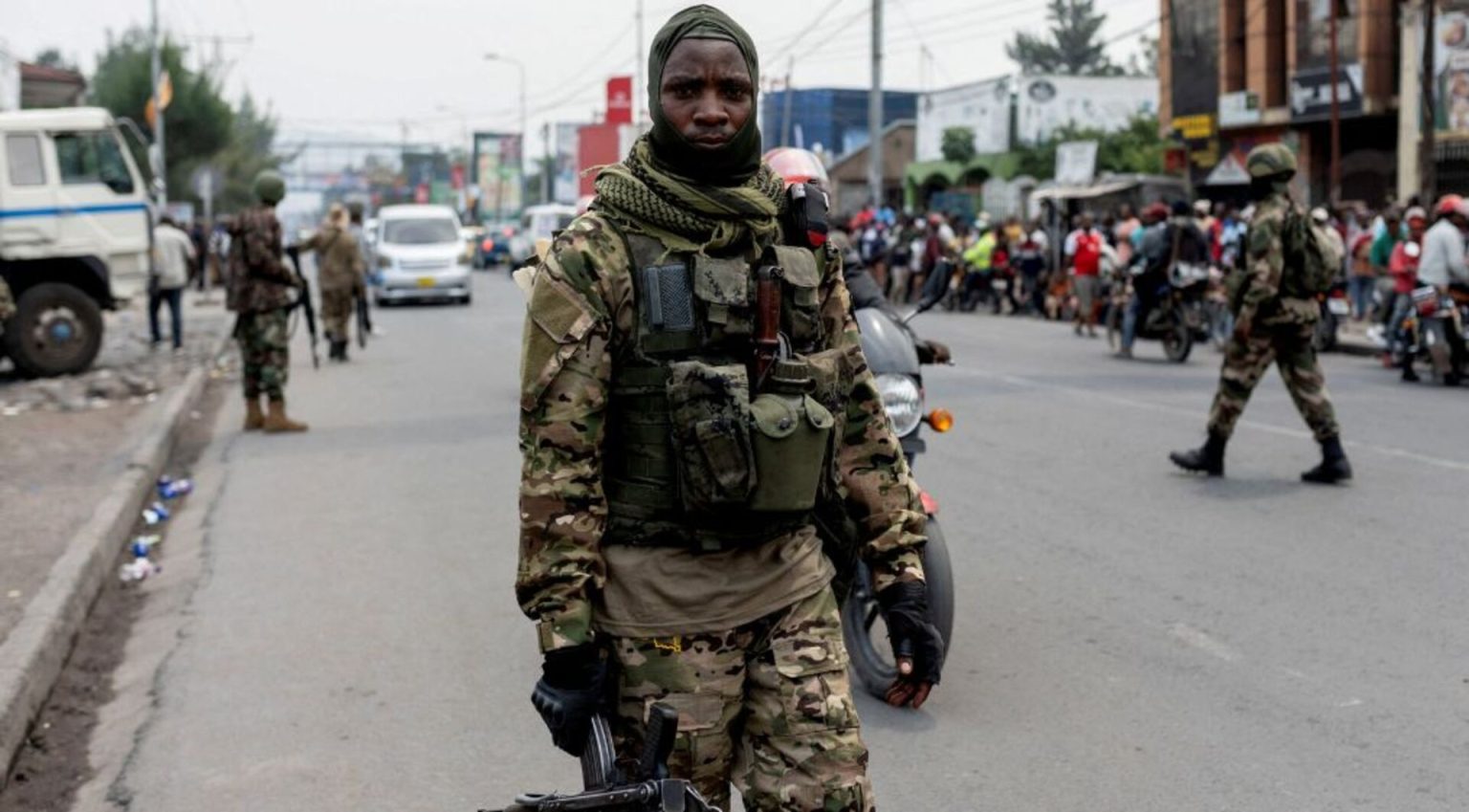The eastern Democratic Republic of Congo (DRC) is embroiled in a rapidly escalating humanitarian and political crisis, fueled by a renewed offensive from the March 23 Movement (M23), a rebel group with alleged ties to Rwanda. This resurgence of violence, marked by the capture of a regional capital and the displacement of hundreds of thousands of civilians, has destabilized the region and reignited long-standing tensions between the DRC and Rwanda. The M23’s advance deeper into Congolese territory has resulted in widespread casualties and suffering, raising alarms within the international community and prompting urgent calls for a resolution. The conflict is further complicated by accusations against Rwanda for actively supporting the M23, a charge Kigali vehemently denies while claiming its military presence in the border region is solely to prevent the conflict from spilling over into Rwandan territory. This intricate web of accusations and counter-accusations fuels mistrust and hinders efforts towards a peaceful resolution.
The M23 rebellion is not a new phenomenon; it has its roots in previous conflicts and grievances dating back to the aftermath of the Rwandan genocide. The group, largely composed of Tutsi fighters, initially emerged in 2012, claiming to protect the Tutsi population in the DRC from persecution. Their initial rebellion saw them briefly seizing Goma, the capital of North Kivu province, before being pushed back by Congolese and UN forces. However, the underlying issues driving the conflict, including land disputes, ethnic tensions, and competition over valuable mineral resources, remained unresolved. The current resurgence of M23 activity suggests a re-ignition of these unresolved issues, further complicated by the alleged Rwandan backing, which adds a significant dimension to the conflict dynamics. The alleged Rwandan support, if proven, significantly alters the balance of power and presents a challenge to regional stability.
The involvement of Rwanda in the conflict, whether directly through military support or indirectly through logistical and financial assistance, remains a contentious point. The DRC government has consistently accused Rwanda of backing the M23, citing evidence of Rwandan military presence within Congolese territory. International organizations, including the United Nations, have also voiced concerns and pointed towards credible evidence of Rwandan involvement. Rwanda, however, maintains its denial of any support for the M23, insisting that its troop deployment in the border areas is purely defensive, aimed at protecting Rwandan territory from cross-border incursions and the spillover of violence. This contradicting narrative further complicates the situation, hindering mediation efforts and fostering a climate of distrust between the two countries. Resolving this impasse is crucial for achieving a lasting peace in the region.
The humanitarian consequences of the renewed conflict are dire. The fighting has forced hundreds of thousands of people to flee their homes, creating a large-scale humanitarian crisis. These displaced populations face immense challenges, including lack of access to food, shelter, and medical care. The ongoing violence also disrupts essential services, hindering access to education and healthcare, and further exacerbating the vulnerability of the affected communities. The scale of displacement puts immense strain on existing resources and requires a concerted international response to address the urgent needs of the displaced population. The conflict also raises concerns about the potential for further escalation and the risk of widespread human rights violations.
In an attempt to de-escalate the situation and find a peaceful resolution, regional leaders from southern and eastern Africa have engaged in mediation efforts between the DRC and Rwanda. These efforts aim to facilitate dialogue, rebuild trust, and address the underlying causes of the conflict. However, the deep-seated mistrust between the two countries, fueled by historical grievances and the ongoing accusations of Rwandan support for the M23, presents a significant challenge to these mediation efforts. The success of these initiatives hinges on the willingness of both parties to engage in good faith negotiations and to address the root causes of the conflict, including the alleged external support for the M23 and the internal grievances that contribute to its resurgence.
The persistent conflict in eastern DRC highlights the complex interplay of regional dynamics, historical grievances, and competition over resources. The ongoing violence underscores the urgent need for a sustainable and inclusive peace process that addresses the root causes of the conflict and holds those responsible for human rights abuses accountable. The international community must play a more active role in supporting regional mediation efforts, providing humanitarian assistance to the affected populations, and pressuring all parties to engage in constructive dialogue. A lasting solution requires a comprehensive approach that includes security sector reform, economic development, and addressing the underlying issues of land disputes, ethnic tensions, and the illegal exploitation of natural resources. Without a concerted and sustained effort, the cycle of violence in eastern DRC is likely to continue, further destabilizing the region and perpetuating the suffering of its people.

